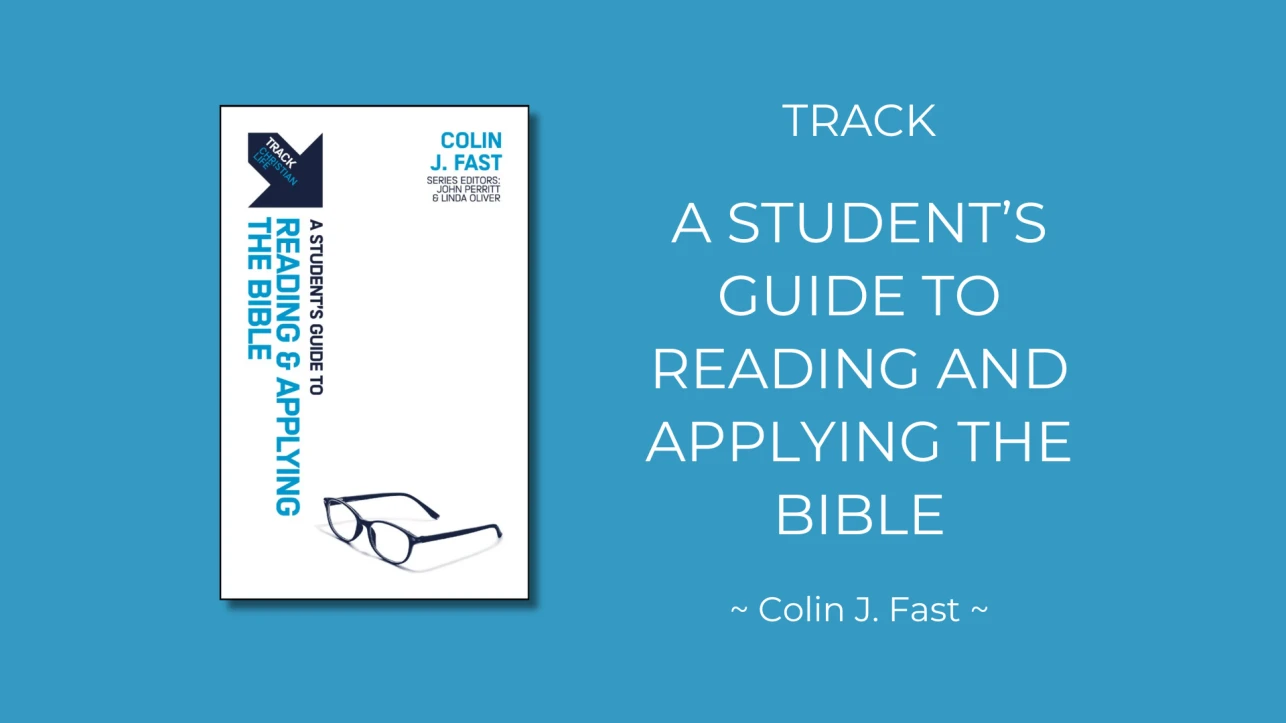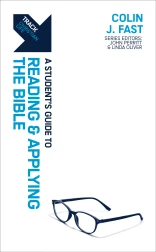Why Read the Bible?
Struggling to read the Bible? This accessible guide reveals three compelling reasons why Scripture matters: it's God's personal letter, reveals Jesus' story, and transforms lives practically.

This is an excerpt from Colin J. Fast, A Student’s Guide to Reading and Applying the Bible, Track, eds. John Perritt and Linda Oliver (Fearn: Christian Focus, 2025)
When I was in my early teens, I remember being encouraged to read my Bible from my parents and my pastors. I would pick up my Bible and try to read it, getting a few days, a few weeks, or a few months in before I would forget. A few months would go by and I would realise, to my shame, that I had failed, and I would give it another try. Whether it was the tabernacle details in Exodus, the laws in Leviticus, the numbers at the beginning of Numbers, the portioning of land in Joshua, more numbers in Chronicles, or the confusing details in the prophets, it seemed every time I would turn somewhere new and try again, I would end up back in ‘the boring bits’ and call it quits. I was being told to read the Bible, but I didn’t understand the purpose – why should I read this book? Why is this one so important? And how do I make sense of all these confusing, or boring, or strange parts?
After spending years reading, studying, and preaching the Bible, and years reading about reading, studying, and preaching the Bible, I began to realise that there were a lot of challenging, technical books on the topic – but fewer accessible introductions. In fact, some of the books that have been most helpful in learning to read the Bible on my own were books I read in preparation to preach. Yet not everyone can (or should) preach. My hope for this little book is that it might encourage and equip its readers in how to read and apply the Bible, encouraging a lifetime of growing in love and knowledge of the God whose Word it is.
Before we turn to what the Bible is, let’s look at three brief reasons (there could be many more!) why we should be interested in reading the Bible to begin with.
The Bible is God’s Word
If you were sent a letter from the King of the United Kingdom or the President of the United States of America, would you read it? Even if you didn’t like the person in the position, there is no doubt that the letter they sent would be read – it’s from the King, after all! And yet this is the exact situation we find in the Bible, except the one who wrote the book isn’t just a king or a president but is the King of Kings – the creator of the entire world. Do you want to know what He has to say to you?
The Bible is God’s Word. ‘All Scripture is breathed out by God,’ the Apostle Paul writes in 2 Timothy 3:16, and the authors of Scripture, ‘spoke from God as they were carried along by the Holy Spirit,’ Peter tells us (2 Pet. 1:21). In the Scriptures, we can read what God has spoken throughout the ages. We can read what promises God has made and how He has fulfilled them. We can read about God calling a people to be His own, and how He has been faithful to them despite their rebellion against Him. While there are many human authors of the Bible, they were all used by God to write down His story and His message – there are many human authors of Scripture, yet there is only one ultimate author of Scripture: God Himself. We will explore the significance on the Bible being God’s Word in the next chapter.
The Bible Tells Us About Jesus
The Bible is God’s very Word to His people, letters and books and songs and poetry from the King of Kings, which tell us about Jesus. At the end of the Gospel of Luke, after the death and resurrection of Jesus, He appears to two disciples mourning His death. After inquiring of them, He begins ‘with Moses and all the Prophets’ and interprets for them how ‘all the Scriptures’ were concerning Himself (Luke 24:27).
The Ancient Roman god, Janus, was thought to be a two-headed god, looking backwards and forwards, marking transitions and new beginnings – what has been and what is yet to be. Jesus is like the Janus point of the Bible, the hinge point to whom everything that came before looked forward and everything that came after looked back. The better we understand the narrative of Scripture, the better we understand the life, death, and resurrection of Christ; and as we grow in our knowledge of Christ, we will live our lives more in line with how God tells us to live. Understanding the narrative of Scripture and how it all points to Jesus will be explained more in chapters two and three.
The Bible is Helpful
Perhaps the most ‘practical’ reason to read the Bible is simply that it is helpful. Again in 2 Timothy, Paul writes to Timothy that ‘all Scripture is breathed out by God and profitable for teaching, for reproof, for correction, and for training in righteousness’ (3:16) It is a helpful, useful book which, if read and meditated on, will teach us and train us in the things of God and the way of God, ‘that the man of God may be complete, equipped for every good work’ (3:17).
As we take the Word of God to heart, as we learn the story of Jesus and are transformed by Him, we are made perfect, ‘complete,’ and ‘equipped’ to live our lives in obedience to the will of the God who loves us. Understanding how the Bible is helpful for us is done through the process of reading and applying the Bible in our lives, which will be explained more in chapters four through eight.
Conclusion
Christians are people of words and the Word; books and the Book. From the very beginning of the biblical story, we see people reading and writing as commanded by God, and as Christianity spread across the globe over the past two millennia, literacy and literature went with it. As Christian missionaries break into new, non-literate contexts, they create written languages based on the spoken languages, translate the Bible into this newly formed language, and teach people to read this newly formed language so that they can read the Bible – because Christians are people of the Book.
We are privileged to live in a day and age where we have such easy access to reading the Bible in our own language – and have many different translations to choose from – yet our attention span is diminishing and our ability to read for any sustained amount of time is diminishing along with it. Nevertheless, the Bible is God’s very Word to us, which is helpful for us, and which tells us the story of Jesus. It is worthy of our time and attention!



